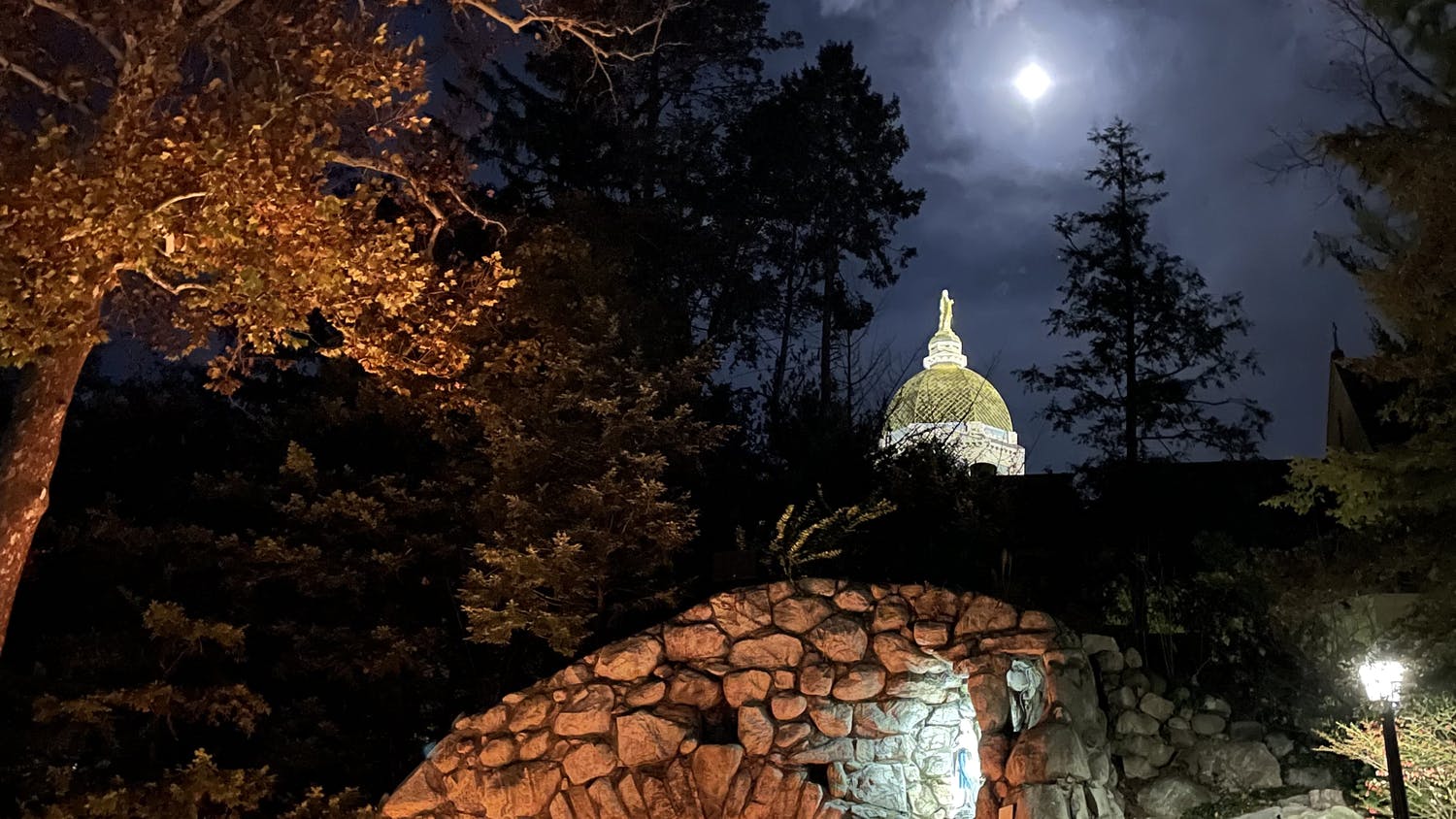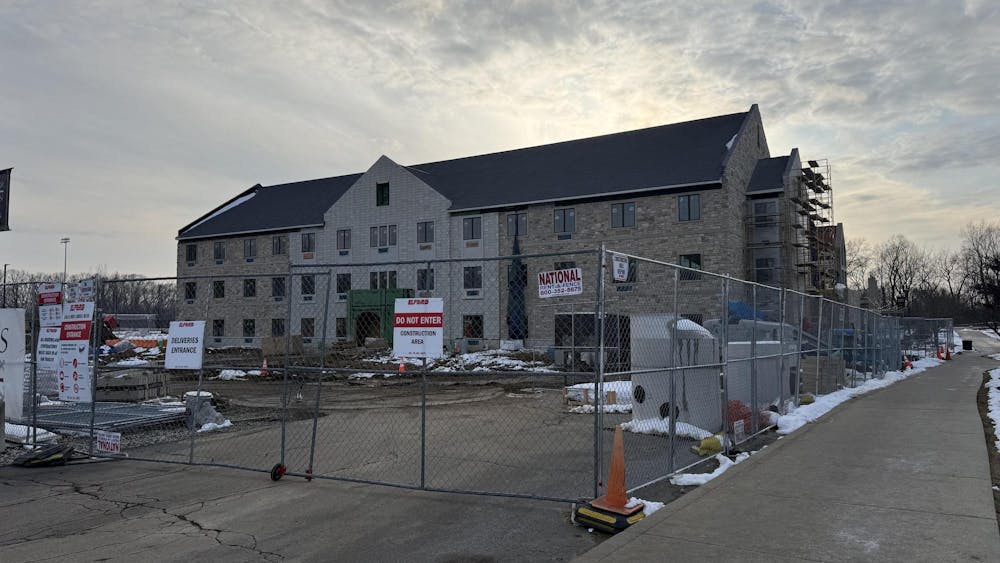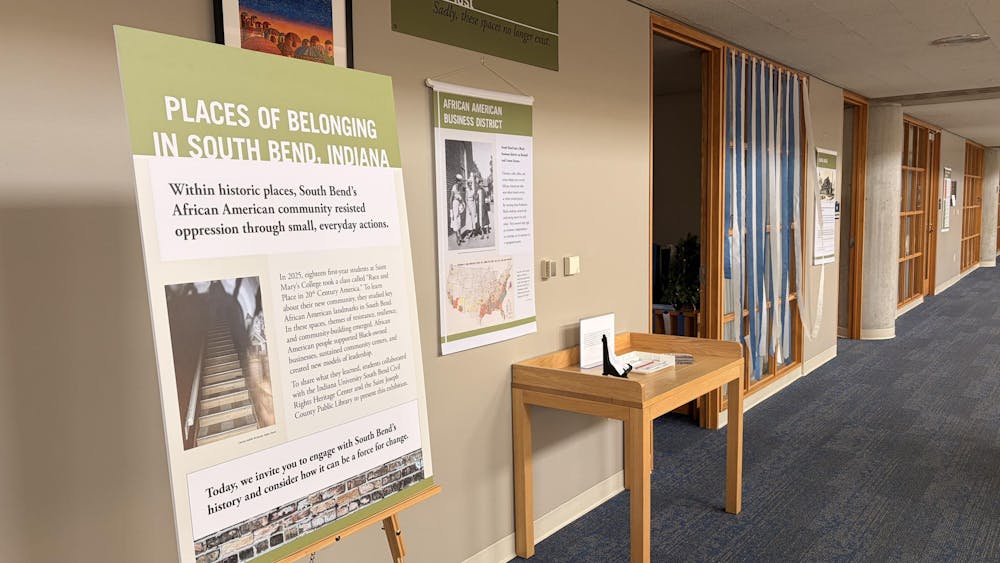Tucked away in the corner of the Grotto is a statue of Dr. Tom Dooley, a famous physician and humanitarian who attended the University of Notre Dame in the late 1940s. Attached to this statue is a letter written by Dooley to University President Emeritus Fr. Theodore Hesburgh in the days and months before his death, where he reflected on the importance of the Grotto. Dooley said, “If I could go to the Grotto now then I think I could sing inside. I could be full of faith and poetry and loveliness and know more beauty, tenderness and compassion.”
Despite the fact that this letter was written more than 50 years ago, Dooley’s humanitarian work continues to be honored around the nation.
A majority of Dooley’s work was concentrated in what today is Vietnam, Cambodia and Laos. According to Dr. Richard Lavely, the president of the Dr. Tom Dooley Foundation, an organization which aims to provide medical care in developing countries, Dooley, while in the Navy, helped refugees in Vietnam.
“Tom and three corpsmen went on shore and set up a refugee camp,” Lavely said. “One-third of these people had cholera, and one-third of these people [were] so malnourished that they can’t make the journey [to flee Vietnam], they’re starving to death, and the other one-third of people had been traumatized physically by the communists.”
Lavely said he believes Dooley’s commitment to helping those struggling was rooted in his time at Notre Dame.
“Notre Dame is a place where you look for people to help,” Lavely said. “[If] you see someone who needs help you stop what you’re doing and help them. I think that is what Tom saw, he saw really wretched people who needed hydration, who just needed their ears stitched up and he jumped into action.”
Lavely said that this admiration for Dooley pushed him and his brother, Fr. Chuck Lavely, to honor Dooley in some greater way on campus. Dr. Lavely said that after he heard from a friend of Dooley’s, Philip Utz, that Dooley had lived in Cavanaugh Hall, he thought there should be some sort of recognition at Cavanaugh.
The brothers’ work led to the instillation of a re-creation of an oil painting of Dooley in Cavanaugh Hall.
Dooley’s legacy in the medical field is also being honored by The Dr. Tom Dooley Society for Medical Alumni of Notre Dame.
Mark Hubbard, who with his wife Bridget Hubbard, helped their son Matthew Hubbard create the Dooley Society, said their organization helps to connect doctors who graduated from the University.
“We have an award which we give out every year to someone who follows the precepts of the Dooley Society,” Hubbard said. “We have networking, the doctors in our database can reference each other and talk back and forth, and we have medical mission stipends … which go to Notre Dame undergraduates — or Notre Dame graduates in medical school to go on a medical mission.”
Hubbard said he and his family were “vaguely aware” of Dooley before the foundation, but after research and consultation with Hesburgh, his son decided to name the foundation in his honor.
Another aspect of Dooley’s legacy that continues to be honored is his status as a member of the LGBT community in a time when his sexuality was not widely accepted. Dooley was kicked out of the Navy as a result of his sexual orientation.
The Gay and Lesbian Alumni of Notre Dame and St. Mary’s (GALA-ND/SMC) has named its scholarship after Dooley to honor this legacy.
“We wanted to create an award that really symbolized the character of Notre Dame,” GALA-ND/SMC president Jack Bergen said, noting that Dooley’s work fit the bill. “ … [A] key characteristic of Notre Dame is giving back to the community, which Dr. Dooley did very much of. And courage — he showed a tremendous amount of courage as he went into Vietnam, Cambodia, Southeast Asia, Indochina, as it was called, and took personal risks in terms of the work he was doing.”
Bergen said that after careful consideration, it seemed only right that the award be named in Dooley’s honor.
“We looked at the work that he did, and the fact that he was gay, we felt that it was important to establish this award not only to recognize his effort but also to recognize, as we move through the years, people that symbolize key characteristics he displayed through his life,” Bergen said.
Univeristy honors the legacy of Dr. Tom Dooley
Rosie LoVoi | The Observer
The statue of Dr. Tom Dooley stands against the backdrop of the Grotto. Affixed to the statue is a letter from Dooley to University President Emeritus Fr. Theodore Hesburgh, written more than 50 years ago.









